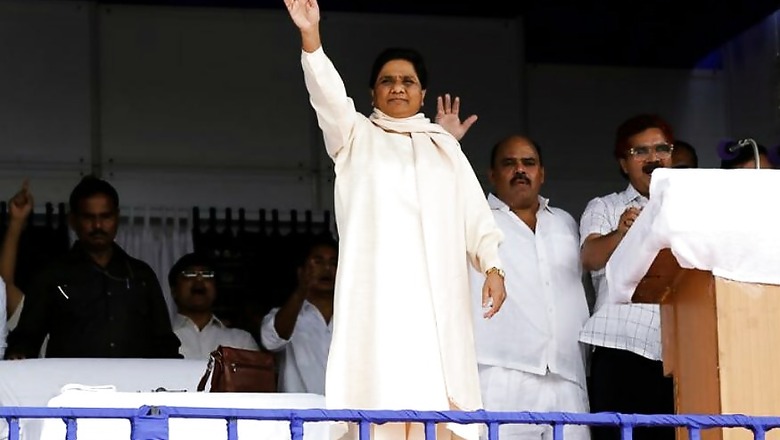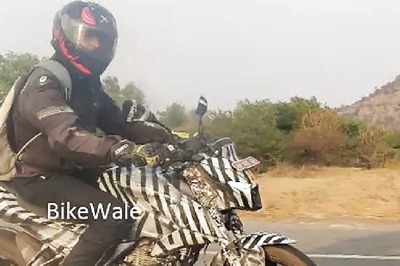
views
Bengaluru: When BSP chief Mayawati climbs onto a huge stage to address voters in poll-bound Karnataka on Saturday, there will be more than one chair. There may even be half a dozen chairs which is a rarest of the rare sight. This will also be the first time since 1996 that ‘behenji’ has gone for a pre-poll alliance. It will be her first election rally after the decimation of the Bahujan Samaj Party in last year’s UP Assembly elections.
The subdued Dalit leader has done something unthinkable a few years ago. She has agreed to play second fiddle to former Prime Minister H D Deve Gowda in Karnataka.
In a sudden development, her right hand man and MP Satish Chandra Mishra and Gowda’s pointperson in Delhi Danish Ali Baig signed a pre-poll alliance last week. And the BSP has got just 14 seats to contest in the 224-member House.
The JDS’ ‘woman farm labourer carrying a stack of paddy on her head’ and BSP’s elephant will walk together across the state during the hot summer of 2018. Mayawati’s dwindling fortunes in her home state Uttar Pradesh seem to be the reason for her climb-down.
This is the third player in Karnataka politics, the JDS’ first big election rally and the formal launch of its campaign. Even though both Deve Gowda and Mayawati are big national leaders who would be addressing the voters, the main attraction would be Gowda’s son and JDS state chief H D Kumaraswamy. The former Chief Minister has named his poll campaign “Vikasa Parva” and hopes to play a bigger role post results. The party's full page advertisements in leading Kannada newspapers also have the full frame picture only of Kumaraswamy.
Speaking to News18, he said that with the support of Mayawati, the JDS will form the government on its own. He said, “We are not here to share the power with the Congress or the BJP. We will come to power on our own. If there is a hung Assembly, we prefer fresh polls.”
Deve Gowda said that he had joined hands with Mayawati to prevent division of Dalit votes in the state. Satish Chandra Mishra also claims the same.
The BSP made serious forays into Karnataka in 2004. In the 2004 Assembly elections, it had contested in 102 seats and polled 1.74% votes. In the Lok Sabha polls held simultaneously, the BSP had fielded candidates in nine seats and had garnered 1.22% votes.
In the 2008 Assembly elections, the BSP had contested in 217 seats and its vote share climbed to 2.7% seats. In the 2009 Lok Sabha elections, the vote share came down to 1.66%. However, the BSP failed to win even a single Assembly seat in the state. In the 2013 Assembly polls it had fielded candidates in 175 seats and 174 of them lost deposits. The BSP got just 0.95% of the votes in that election that wads won by the Congress.
It was in 1994—its first election in the state—that BSP had opened its account in Karnataka. Syed Zulfikar Hashmi was elected from Bidar in north Karnataka. He later quit the party.
The JDS has a base vote of 15% in the state and it hopes with BSP support it can add a few more seats to its total tally. The local BSP is reportedly unhappy with the alliance and its leaders were not even consulted by Mayawati before signing the pact.
Mayawati is fully aware of her party’s chances in Karnataka. But this tie-up is likely to mark the beginning of ‘like-minded’ third front parties coming together to regain the political relevance they lost after the 2014 Lok Sabha polls.
NCP chief Sharad Pawar has also come forward for a tie-up with the JDS in this election. According to JDS sources, the NCP is likely to contest in seven Assembly seats in Belgaum district. Belgaum district has over 40% Marathi speaking population and Pawar enjoys clout in this part of Karnataka.

















Comments
0 comment